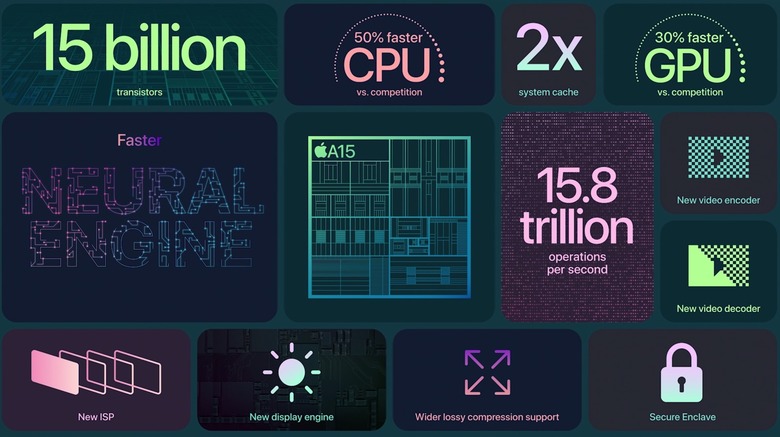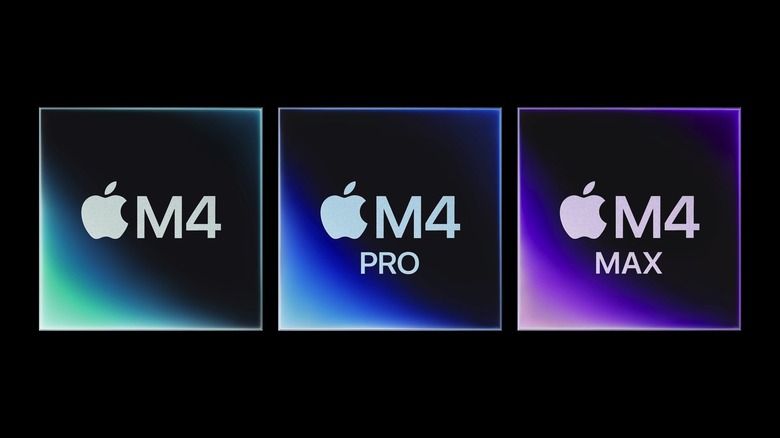Why Mark Zuckerberg's Apple Comments From The Rogan Podcast Are Laughably Wrong
When I saw that Meta CEO Mark Zuckerberg recently appeared on Joe Rogan's podcast, I had no doubt there'd be fireworks. And true to form, Zuckerberg, with his gold chain on full display, didn't disappoint. As is typically the case with anything Rogan, Zuckerberg, over the course of a 3-hour interview, provided several soundbites that quickly made headlines across the tech world. For instance, Zuckerberg said that Biden officials during COVID would call up the company "screaming and cursing" over anti-vaccine posts the company refused to take down.
Also notable were Zuckerberg's remarks about Apple. Parroting a line we've seen countless times over the years, Zuckerberg articulated that Apple hasn't done anything innovative in decades, all but implying that the company's best days are far behind it.
Here's what went down.
While admitting that the iPhone remains one of the most important inventions in history, Zuckerberg flatly said that Apple hasn't done anything interesting since.
"I feel like they haven't really invented anything great in a while," Zuckerberg said. "It's like Steve Jobs invented the iPhone, and now they're just kind of sitting on it 20 years later."
Zuckerberg's position is wildly misinformed. This, however, shouldn't come as much of a surprise to anyone who has followed Apple closely over the years. Apple's alleged lack of innovation has been an oft-heard rallying cry from anti-Apple tech pundits for years. And all the while, Apple quietly soldiers on, delivering new innovations in both hardware and software that continue to shape industries.
Zuckerberg has his own biased reasons to badmouth Apple, but we'll get into that a bit later. For now, let's explore why Zuckerberg's comments about Apple's innovative prowess are off-base and provably wrong.
Apple is held to an entirely different standard
It's funny that people will praise Apple for developing a world-changing revolutionary product like the iPhone, and then criticize them for not doing it over and over again. It's a bizarre take because a revolutionary product, by its very nature, is something that comes along once in a lifetime. That's what makes these types of products so special. And yet Apple, and Apple alone, is expected to repeat this feat once every few years while other companies aren't beholden to this same unrealistic expectation.
When was the last time we saw an earth-shattering innovation from Google, Microsoft, or Meta?
Funny enough, Zuckerberg's take is particularly ironic given that Meta's modus operandi in recent years is to simply copy competing features from rivals. Threads is basically X while Instagram reels was modeled after TikTok. And never mind the fact that Zuckerberg and co. didn't come up with Instagram but decided to acquire it for $1 billion. To be fair, the decision to purchase Instagram was genius, but no one would call it innovative.
Zuckerberg's comment on Apple is akin to someone saying that Ford developed the personal automobile decades ago and they haven't done anything interesting since. Just different versions of the automobile for over 100 years. This point of view is laughably incomplete and neglects the amount of innovation that can happen within a single product line over many years.
Sure, the iPhone is Apple's biggest and most successful product of all time. But the iPhone of today is worlds apart from the original iPhone that launched in 2007. If anything, Apple innovations within the iPhone realm are numerous, impressive, and often help set new standards across the entire smartphone industry.
Touch ID, Face ID, A-X processors
Remember when smartphone users could only lock and unlock their devices with a passcode? It seems like a lifetime ago, but it's a relic of the past because of Apple's innovations.
Apple simplified the unlocking process when it released Touch ID on the iPhone 5s. This feature quickly became common across the industry. Admittedly Apple wasn't the first to introduce a fingerprint sensor for biometric authentication. Still, it was the first to implement it in a way that was actually usable. The long-forgotten Motorola Atria, for example, had a fingerprint sensor on the back and was far from user-friendly.
Touch ID was innovative and simple, but Apple – as a company that remains deeply serious about innovation – wasn't content to stop there. In 2017, Apple released Face ID with the iPhone X. And like clockwork, almost every premium smartphone on the planet today relies upon facial recognition.
It's easy to take all of this for granted now that these technologies have become mainstream. But 20 years ago, the idea that we'd be able to unlock our devices and authorize purchases with our fingerprints or a scan of our faces would have sounded like a page from a science fiction book. But that's exactly the world Apple helped make a reality.
The above examples are just the tip of the iceberg.
Some of Apple's innovations happen underneath the hood, with Apple's line of A-x processors being a prime example. With the iPhone 4, Apple started using proprietary processor designs, starting of course with the A4. Since then, Apple has steadily released new processors which continue to set new standards of excellence both in terms of performance and power efficiency. And that's to say nothing of Apple's innovations with iPhone camera technology, device security, and much more.
AirPods, Apple Pay, Apple Watch, and Apple Silicon, oh my!
Remember when Apple first announced AirPods, and the design was widely mocked? Well, the in-ear design popularized by Apple is, not surprisingly, the de facto standard in the headphone space. And again, AirPods weren't the first in-ear design. But Apple's implementation was best-in-class and has since been copied by an assortment of rivals. We saw the same dynamic play out with Apple Pay which brought mobile payments to the mainstream thanks to its ease of use and stringent security.
And then we have the Apple Watch, yet another device that brought the smartwatch into the mainstream. Since its inception, the Apple Watch has transformed into a best-in-class fitness tracker and health device. The innovation within the Apple Watch over the years has been immense. Some notable features include emergency SOS via satellite for moments when you're out of cellular and wi-fi range, fall detection, heart rate tracking, and much more. Stories of the Apple Watch helping save lives are too numerous to even list out here.
As a point of interest, revenue from Apple's wearables division is now so large that if were its own standalone company, it would be a Fortune 100 company.
And then we have the Mac.
One could write a lengthy article alone just on the incredible innovation that is Apple Silicon. Remember that before Apple Silicon, many said that hardware performance could only improve incrementally at a snail's pace. Apple Silicon came along and changed the equation entirely. Indeed, when reviewers first started testing out MacBook models with the M1 processor, they were blown away. The results were so staggering that some likened the technology to magic.
Apple’s product line speaks for itself
No one's arguing that Apple is the most innovative company on the planet, but to claim that Apple hasn't innovated since the original iPhone and that the company is just resting on its laurels is laughably and demonstrably false. Apple's Vision Pro is a technological marvel, AirPods can now work as hearing aids, and Apple has successfully managed to deliver new iPhone hardware year in and year out for nearly twenty years in a row.
To truly debunk Zuckerberg's claims, all you really have to do is look at the entirety of Apple's product line today and compare it to what Apple had on the table 5, 10, or 15 years ago. Not all innovations occur in a flash. Some are more incremental. To not see the linear progression of innovation is to willfully ignore what is plain to see.


